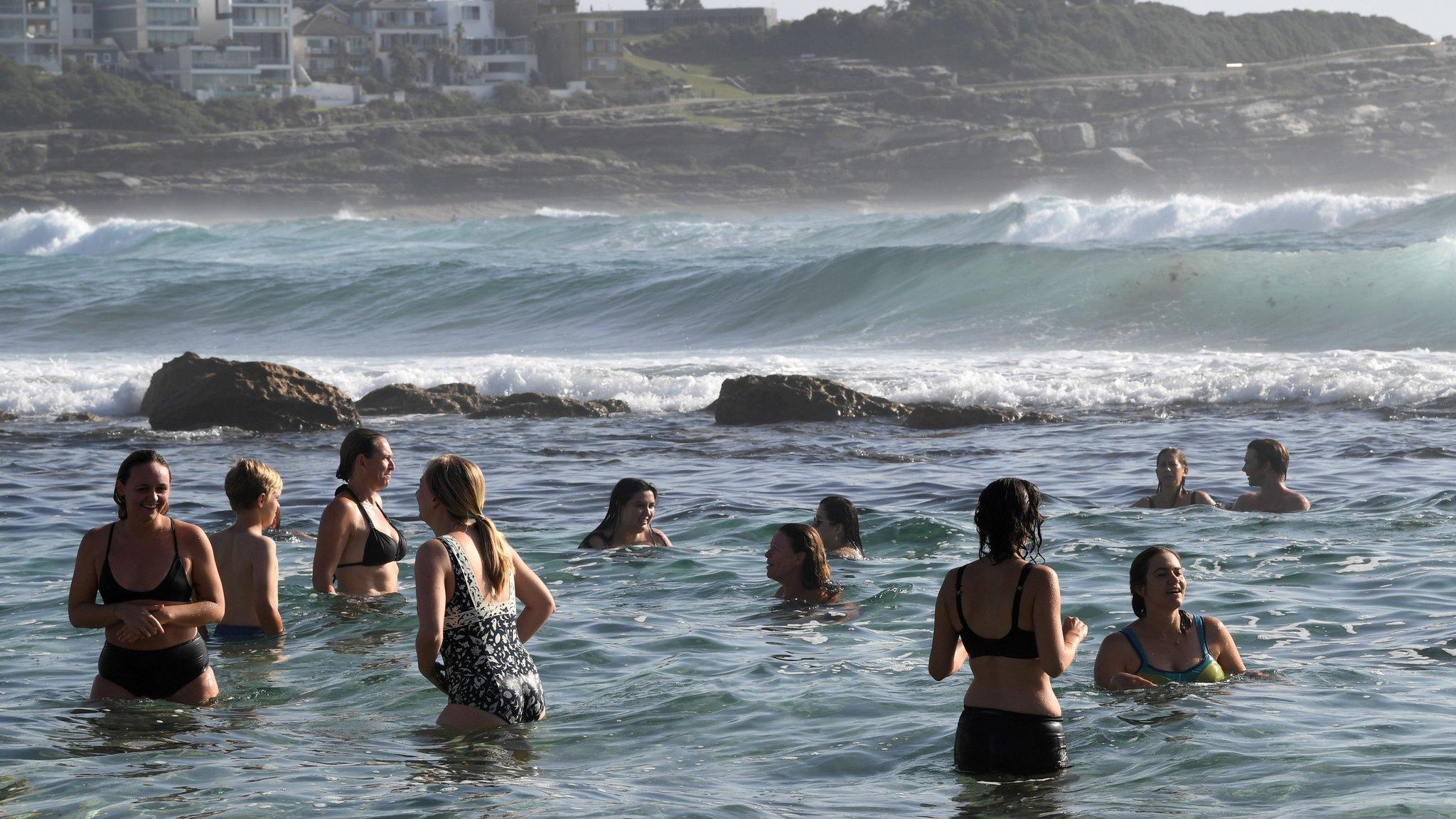Australia floods: Crocodiles seen in 'once in a century' waters
- Published
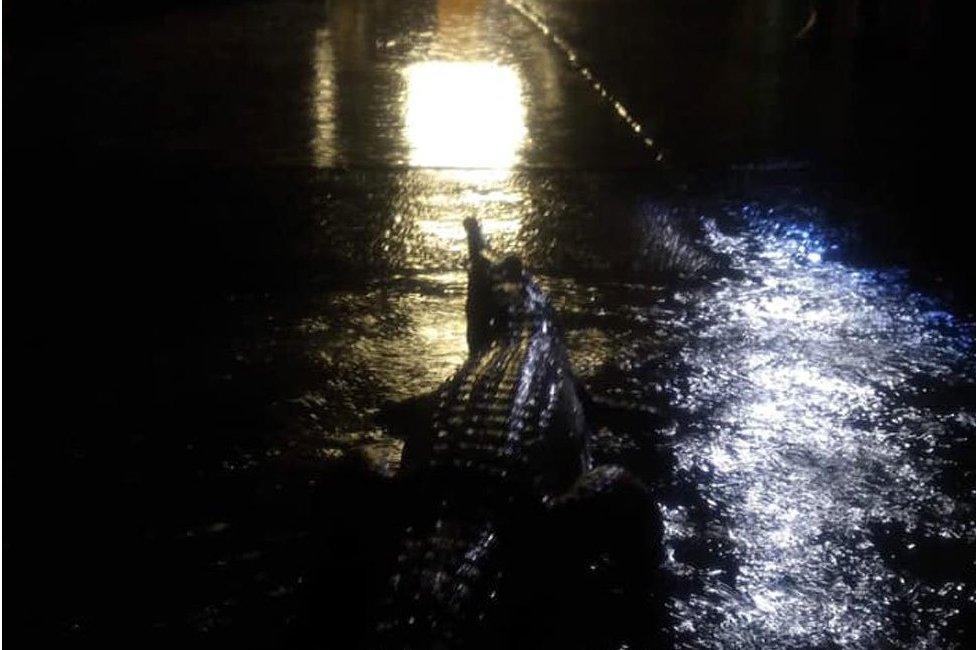
One crocodile was spotted lurking on a suburban driveway in Townsville
Authorities in Townsville, Australia have warned residents to beware of crocodiles and snakes spotted in floodwaters in residential areas.
More than 1,100 people have been evacuated from the town amid a "once in a century" flood.
On Sunday, the city authorities released a dam which had swollen to double its capacity following a week of record rainfall.
Authorities have said more heavy rain is expected in coming days.
Up to 20,000 homes are at risk of being inundated.
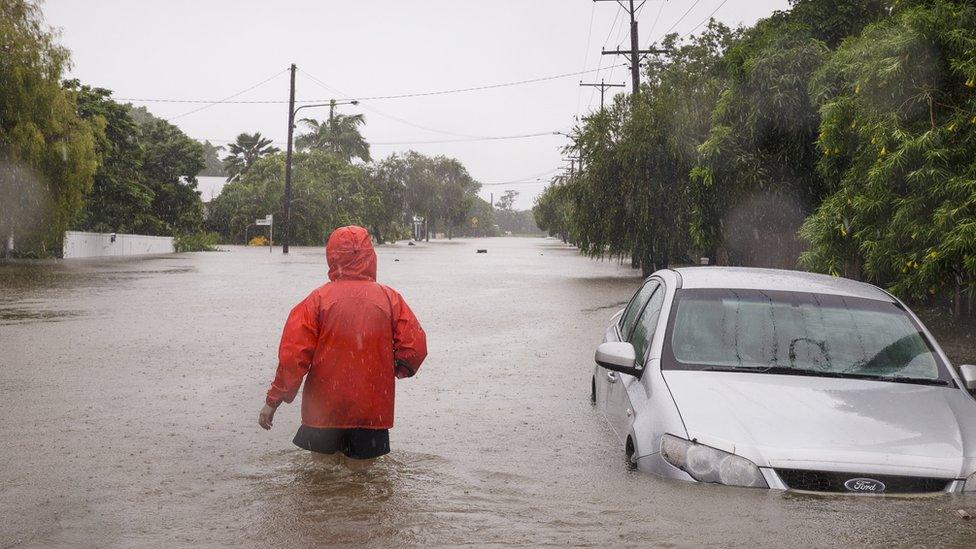
A man wades through flood water up to his thighs in Townsville

Emergency workers and the army said they had received more than 1,000 calls for help. They've been using boats and helicopters to move people to higher ground.
"Crocodiles may be seen crossing roads, and when flooding recedes, crocodiles can turn up in unusual places such as farm dams or waterholes," said Queensland's Environment Minister Leeanne Enoch.
"Similarly, snakes are very good swimmers and they too may turn up unexpectedly."
One local resident, Erin Hahn, shared pictures of a crocodile sitting in shallow water at the end of her father's drive. Another was photographed climbing a tree in the floodwater.
Allow X content?
This article contains content provided by X. We ask for your permission before anything is loaded, as they may be using cookies and other technologies. You may want to read X’s cookie policy, external and privacy policy, external before accepting. To view this content choose ‘accept and continue’.

Local police also warned people of other dangers in the floodwater, including leaking sewage.
Allow X content?
This article contains content provided by X. We ask for your permission before anything is loaded, as they may be using cookies and other technologies. You may want to read X’s cookie policy, external and privacy policy, external before accepting. To view this content choose ‘accept and continue’.

Townsville has received more than a metre (3.3ft) of rain in the past week - more than 20 times the average for the time of year.
"This is unprecedented, we've never seen anything like this before," said Queensland Premier Annastacia Palaszczuk.
"It's basically not just a one-in-20-year event, it's a one-in-100-year event," she said.
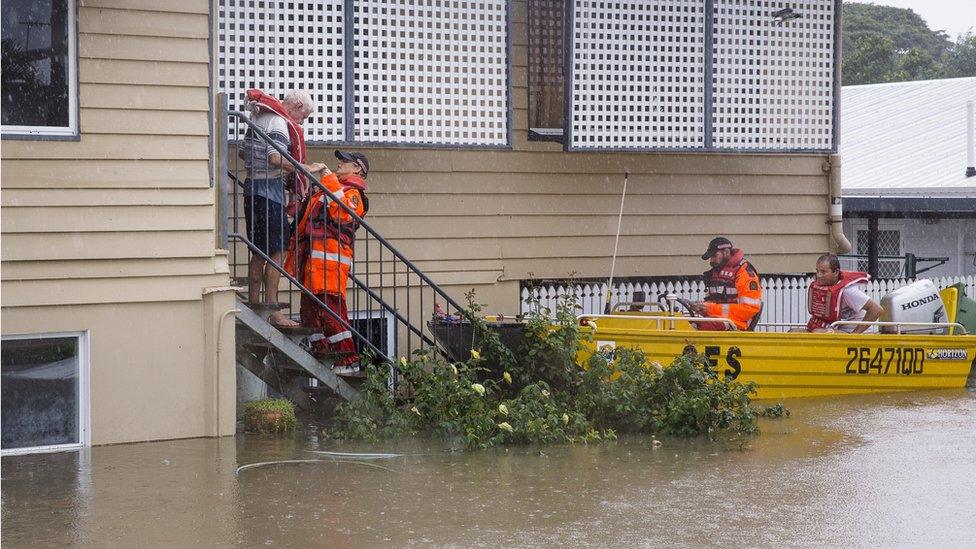
Emergency workers rescuing residents from affected homes in Townsville
Authorities were forced to open the gates at the Ross River dam on Sunday evening to lower water levels - releasing up to 1,900 cubic metres of water a second.
Meteorologists have warned of a "risk to life and property"
Northern Queensland has a tropical climate and experiences monsoon rain from December to April. But the current conditions in the Townsville area are rare.
Australia's Bureau of Meteorology said the monsoon rainfall had missed other parts of the state which are in the grip of an intense drought.
January was the hottest month on record for Australia as a whole, with the southern city of Adelaide reaching a record 47.7C.
The heat has sparked bushfires, including more than 40 blazes on the island state of Tasmania which have been burning for over two weeks.
Extreme temperatures have also caused a rise in hospital admissions, widespread power outages, and reports of mass wildlife deaths.
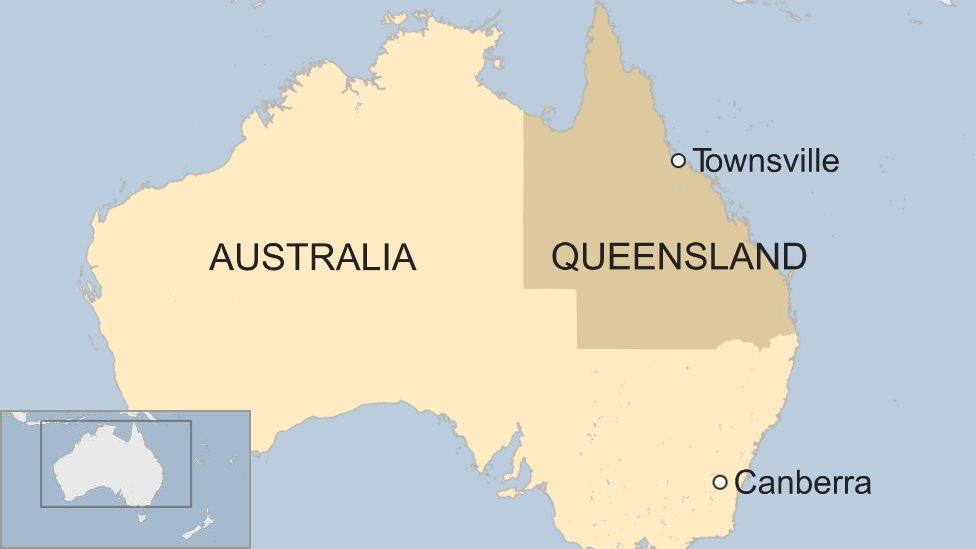
- Published24 January 2019
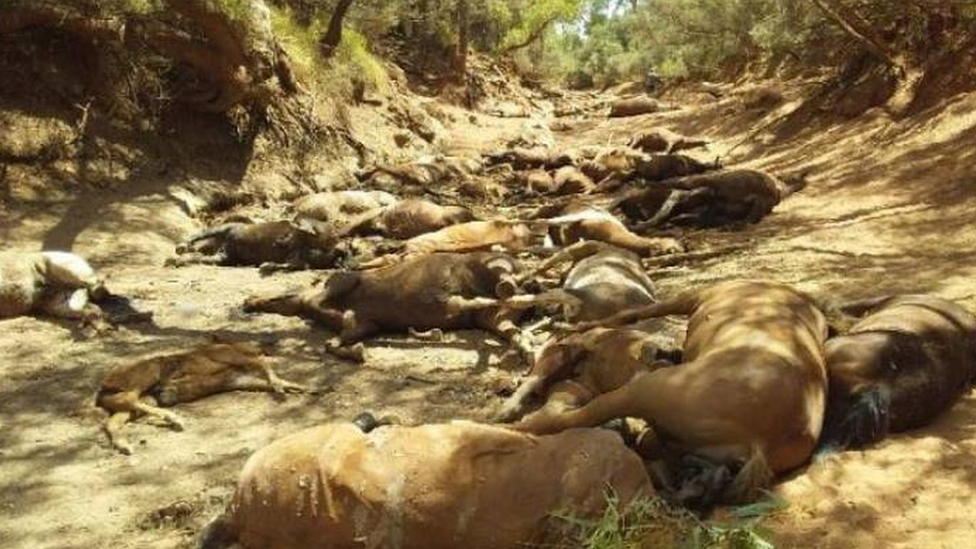
- Published18 January 2019
